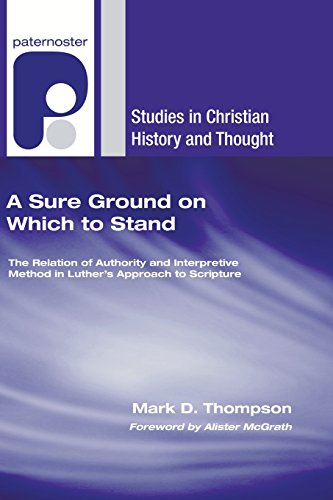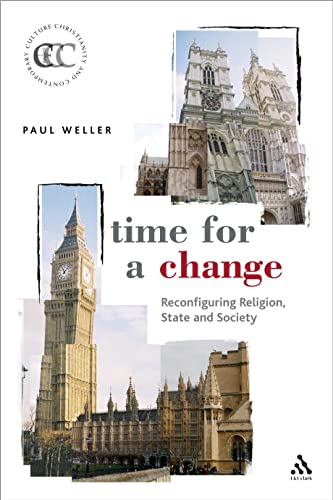Volume 32 - Issue 1
Gender, Grace and a Greek Conjunction
By Robbie F. CastlemanThere are certain subjects in my writing that I avoid like the plague. As a woman, I have avoided writing or publicly speaking out much on ‘the women’s issue’. This is not because it doesn’t concern me, but because I don’t want to end up in ‘women’s studies’ or on a panel rehashing old arguments. My academic degrees are in biblical studies and trinitarian theology and I like to teach New Testament hermeneutics from a trinitarian, covenantal, quasi-VanHoozerian framework and have little patience for one more argument about Paul’s use of kephalē in the fifth chapter of Ephesians.
However, (you knew this was coming!) lately I have been considering the implications of Paul’s precise language in Galatians 3:28. They hinge on the change of a conjunction and speak to ‘the women’s issue’ in an interesting way. The Greek sequence of oude, oude, kai in Galatians 3:28 is telling—‘In Christ, there is neither Jew nor Greek, there is neither slave nor free, there is neither male and female.’ This distinction is not reflected in some translations, but it is significant to appreciate the reality that Paul keenly recognized. Like Jesus, Paul rooted his hermeneutics in pre-fall origins: ‘it was not so from the beginning’). Prior to the fall, there are no ethnic or socio-economic distinctions in the human family, but there is ‘male and female’ created by him and bearing the imago Dei. Gender distinction. Equality and compatibility are not manifestations of fallenness, but part of God’s very good creation both in the beginning and in Christ eternally.
I think this oude, oude, kai reality should be increasingly manifest in the life of the church. Our identity in Christ, and our suitability to serve the church have nothing to do with our racial, socio-economic or gender identities. The thrice repeated, ‘there cannot be’ (ουκ ενι) is determinative of all three distinctive couplets. Paul, however, makes the point that gender distinction is a created identity maintained and fully redeemed in Christ to bear together the image of God in the work and mission of the church. Both egalitarians and complementarians can probably find a way to use Paul’s sentence for their own benefit, and this is precisely where I get tired of the argument that wages over my feminine head.
I have often thought how the man born blind (John 9) must have felt when yet one more rabbi and his disciples hovered over his head (I might be blind, but I can hear!) to make him the foci of yet another theological debate about ‘who sinned.’ It is easy to forget that theology matters to, and actually affects, real people. It’s easy to wage a war over words or pronouns and never honestly ask what is being said about over half the people that have ever populated our planet. For some, it can be a triumphant rush to see oneself as a defender of biblical inerrancy, to be one of the important few who stand fast on biblical authority (and yet gloss over in a variety of ways the counter-cultural advocacy for and inclusion of women in the ministry of Jesus and Paul). I am weary of hearing the point and counter point of kephalē, authentein, Junia, and the dispute over anthropos that a first semester Greek student should have settled. I want Jesus to come by, spit in the mud, treat me like a person in whom God is at work, and end the debate that rages over my life as though I were unaffected by the argument. Paul’s careful tri-fold ουκ ενι levels the field and his oude, oude, kai tells me that, like my brother, I am not invisible and my gendered personhood in Christ matters. Our equality in Christ Jesus is not a thing to be grasped at, fought over, proven and made the standard-bearer of our rights for women or for men. That is not if we are talking about the Kingdom of God and our partnership in the gospel.
To have the mind of Christ, to think like Jesus, to be like Jesus and to engage in ministry like Jesus does not mean to fight for ones’ own right to exercise one’s own gifts. What it means is to notice and open doors for the exercise of another’s gifts for the benefit of the church and the good of the world. To have the mind of Christ means to be a self-emptying person for the sake of the other. When taken seriously, kenotic theology is bound to be unpopular because, as Paul clearly shows throughout the Philippian epistle, all must lose in order for Christ to truly win. Paul challenged the church in Philippi, and in particular Euodia and Syntyche, to count it all rubbish, to count it all loss like he had learned to do. This may be particularly costly for women in the evangelical church today. As a trinitarian theologian I staunchly affirm that Gods self-revealed identity as Father and Son and Spirit are non-negotiable terms, I also assert that gender-accurate translation regarding the human family honours the Lord, the text and the church. (Holding these two ideas together in one’s life and discipline is akin to being a womb-to-tomb pro-life advocate. One is rendered politically homeless in the United States, but it does foster a watchfulness for the Kingdom to come.)
What would a community of faith (or a marriage!) look like if it gave itself to Paul’s kenosis mandate for ecclesial life and really reflected the ουκ ενι and oude, oude, kai pattern of Pauline scripture? What would happen if people championed each other’s gifts? Worked for the other’s benefit? Heralded each other’s opportunity? What would the excellence of our ministry look like if we stewarded our invitations as surprising privileges instead of negotiated rights? What would happen if our language reflected all whom God intended to hear and obey? We might make Paul’s joy complete, become a community of real saints, be filled with the Spirit, look like Jesus and bless the Father’s heart! We might be able to get on with the mission of the church in the world if we stopped arguing over our own turf!
For many brothers and sisters who think there is too much to lose in risky kenosis, the gospel has a resounding reply to such fears. How dare we evangelicals, who defend the foolishness and weakness of the cross, and explain the humiliation of the incarnation better than anyone, consistently forget or intentionally eliminate the implications of kenotic theology in the turf wars that consume ‘the women’s issue’? Brothers protect their power and sisters want their share. Then either nothing changes or things get worse because no one is willing to risk the challenge of faith: to die to ourselves that we might truly live in Christ.
I am grateful that the benediction my husband and I chose for our wedding has also been the commitment of our marriage. I think it reflects Paul’s longing for Philippi, the churches in Galatia and God’s hope for the body of Christ. I commend it as both the starting point and the end result of our current conversation.
‘May the God of steadfastness and encouragement grant you to live in such harmony with one another, in accordance with Christ Jesus, so that together you may with one voice glorify the God and Father of our Lord Jesus Christ.’ Romans 15:5–6
Robbie F. Castleman






